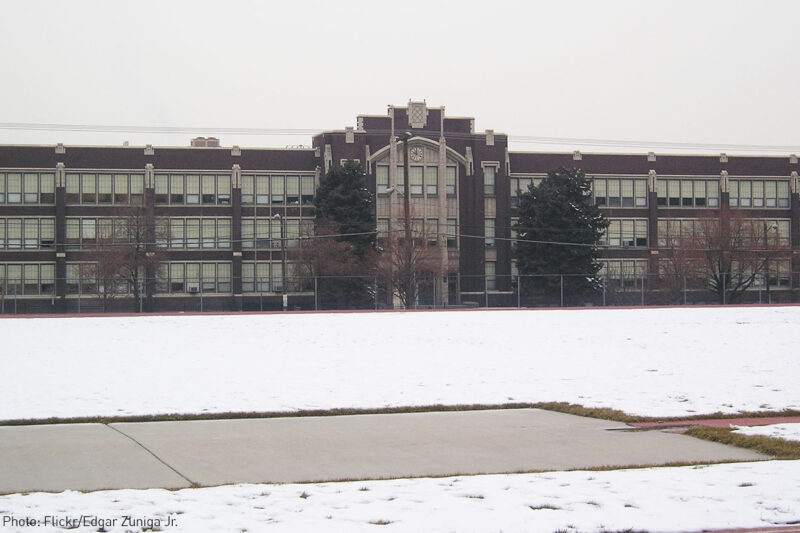Police Accountability Doesn't Stop at the Schoolhouse Door


On December 16, 2010, the Salt Lake City Police Department and the Safe Streets Violent Crimes Task Force, in coordination with Salt Lake City School District officials, entered West High School in Salt Lake City to conduct a gang raid. Each one of the young people detained during the raid had brown skin. Not one was accused of committing a crime, but it didnÔÇÖt matter. They were treated like criminals and labeled as gang members.
Students told us about being stopped walking down the hall or pulled out of their classrooms or the cafeteria. They told us about being questioned harshly by police and being forced to hold placards declaring their purported gang affiliations. Students were told that their information was being entered into a database.
Students also told us about the humiliation and fear they experienced that continued to cast a shadow over their school experience. Kaleb Winston was a 14-year-old freshman at the time of the gang raid. He was picked out from a cafeteria table and told that his graffiti-printed backpack ÔÇö a reward for "A" grades ÔÇö and his art class drawings were evidence of his gang involvement.
He was brought into a small office where he was questioned and photographed holding a white board declaring him a "gang tagger" despite his repeated denials. Confused and scared, Kaleb left school in tears, for which he was further ridiculed by police officers. Kaleb and other students told us that they felt marked as criminals. Teachers and other students looked at them and treated them with suspicion.
At 14, life should hold promise of new possibilities. Instead, for Kaleb, school became a place where he felt unwelcomed. He told his mom, ÔÇťI hate being Black.ÔÇŁ
He told his mom, ÔÇťI hate being Black.ÔÇŁ
But Kaleb and his family fought back, and today they received the justice they deserve. In an important victory in the ongoing national fight to end the criminalization of youth of color in school, the Salt Lake City Police Department and the Salt Lake City School District have agreed to make broad changes in how they treat students of color and engage in school disciplinary issues as part of settlements reached in our lawsuit, Winston v. Salt Lake City.
These safeguards, such as clear limits on the role of police in schools and training for law enforcement and teachers, will protect students' constitutional rights in interacting with police at school. They are also sound policy for strengthening school communities and reforming criminal justice. Our settlement with Salt Lake City police and schools is evidence that changing the way police operate within schools is necessary and possible.
Recent horrific incidents in Spring Valley, South Carolina, and in , Maryland, remind of us that the need for police accountability and reform does not stop at the schoolhouse door. On the contrary, schools should feel like safe spaces for students, not quasi-prisons where harsh discipline predominates and compliance is obtained through police force.
Police officers, including school resource officers, are increasingly present in our schools. Schools continue to call police and suspend and expel students for minor disciplinary infractions. Too often, these strategies fill gaps like a lack of teacher training to engage students and de-escalate conflict which are often compounded by a lack of resources for counselors and supports for students with disabilities.
Young students of color bear the burden of these misguided strategies. Although there is no evidence that students of color misbehave at a higher rate than their white peers, more than referred to law enforcement from schools are Black or Latino.
The criminalization of young people of color in school has devastating impacts. Young people who are arrested in school are often pushed into inadequate alternative education or out of school altogether. Students who commit minor offenses may end up in secured detention if they violate boilerplate probation conditions such as a prohibition against disobeying teachers. Other students, too, are negatively impacted by a school climate marked by harsh policing.
Our youth deserve the opportunity to learn in an environment that is safe and supportive, not undermined by excessive policing. To achieve this, calls for accountability and reform must extend to of policing within our schools.
For more information on reforming the use of police and excessive discipline in your schools, visit the website.
Learn more about the └¤░─├┼┐¬Ż▒Żß╣űÔÇÖs campaign for smart justice

